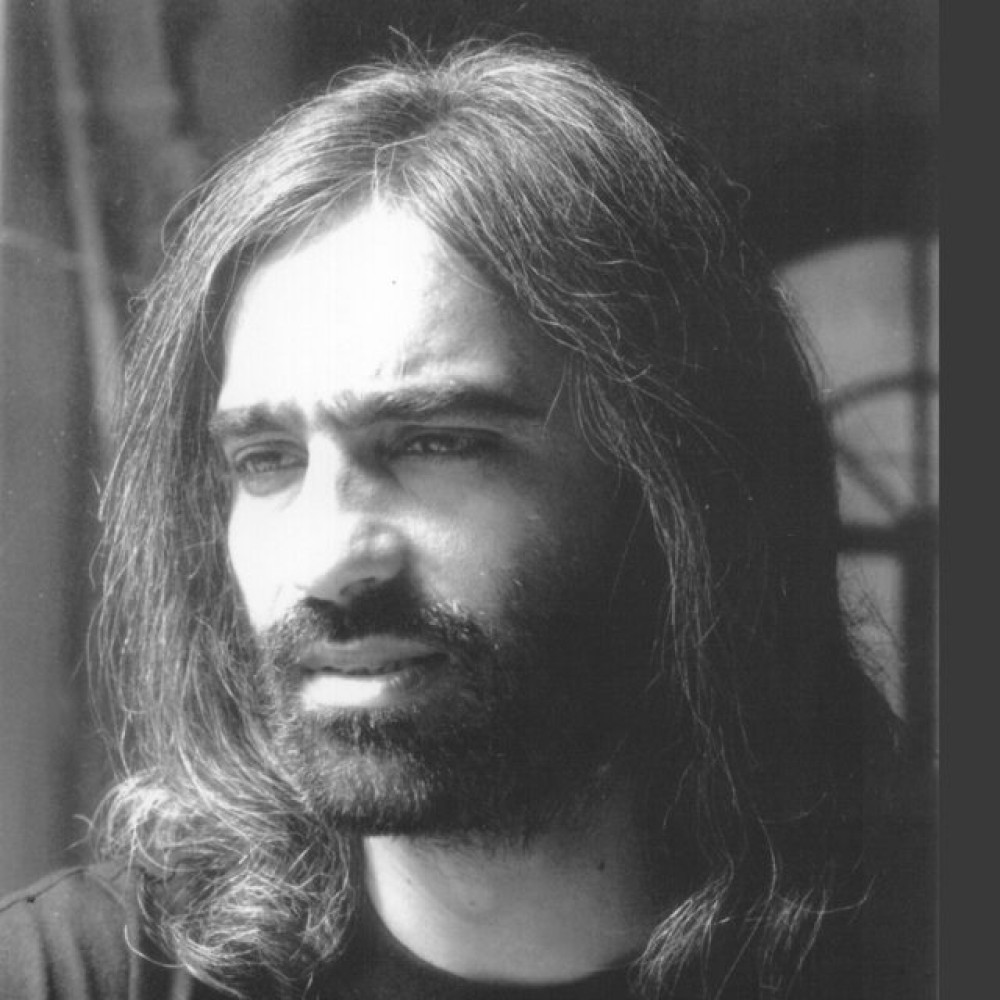
He was born in Zakynthos on 7 April 1952. His first contact with the study of music was empirical with the help of self-taught music teachers. He began his studies in Athens by studying piano, guitar and theory at the National Conservatory of Music. His teachers were the composers Michalis Vourtsis (1908-1983) and Dimitris Dragatakis (1914-2001). He continued his musical studies in America at the University of Illinois, Chicago, from 1974 to 1978, on the analysis of music with Ernest Brown (1947-2012). Alongside his studies, he began to engage in research on pre-revolutionary song in Greece. In America he met his future wife, Peggy Finini. They married in 1975 and together they had a daughter, Yakinthi. He returns to Greece permanently in 1979 and engages in intensive musical activity with a focus on Zakynthos.
His love for the special features of his homeland led him to research, study, record and teach works of the Ionian School of Music. This led him to the creation of the artists' group "Musical Askitario", and to the organization of the "Art and Speech Festivals" in Zakynthos. He also establishes on the island the 'Calvius Centre for Music Studies' and the 'Calvius Music School'. Apart from Zakynthos, he founded the Music School of Mykonos and the Music School of the Municipality of Alimos, and participated in the creation of the first Folk School of Traditional Music with Aristides Moschos (1930-2001). He also founded the ensemble "Rapsodoi", presenting musical events in archaeological sites, and continued his ethnomusicological research. Dimitris Lagios' first recording appearance was in 1980 on the album The Four Revolutionary Songs of Rigas Feraios, in collaboration with the historian Georgios G. Ladas, which was published in 1000 copies. Lagios' first personal recording was the album 'The Helios the heliatoras', in 1982, set to the poetry of Odysseas Elytis.
He continues to work fervently with the setting of great poets, such as Kalvos and Solomos, etc. The result of this activity was a series of works such as Ideal Suicides (in poetry by Kostas Karyotakis) (1989) and Psalms (poetry by David). In 1983, he released two popular albums, one with Sotiria Bellou entitled Ai Laos (lyrics by Michalis Bourboulis) (1984) and one with Antonis Kalogiannis entitled 'Edo pou gennithikame' (lyrics by Fonta Ladis) (1984).
In 1985 and 1986 he studied the various forms of Ionian and especially Zakynthian music, and released a series of related albums: Folk Songs of Zakynthos, Of Solomos and Zakynthos, Zakynthian Serenades, Zakynthian Ecclesiastical Tradition, Omilies (as the Zakynthian folk theatre-anecdote is called), as well as the work The Mandolin with music by Ionian composers arranged by him for mandolin, with Dimitris Marinos as soloist.
In 1985, he meets the "secret love of his life", Cyprus. From that day until his death, he dedicated himself to this land and gave his soul for the struggles of the Cypriots. On April 11, 1991, he died at the Evangelismos Hospital. On 28 April of the same year, part of his ashes were thrown into the sea of Zakynthos, in front of the quarter of Agia Triada, while a modest farewell ceremony was held in Solomos Square with a large crowd of people. A week later his remaining ashes were thrown into the sea of Cyprus.
